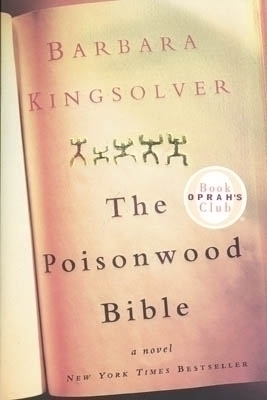Plagiarism Epidemic
press box - SLATE
Why Plagiarists Do It
Because they can.
By Jack Shafer
Posted Wednesday, April 26, 2006, at 6:57 PM ET
Has any plagiarist ever owned up to stealing—deliberately—another writer's words? None that I can recall. Mostly they peddle apologies and excuses like the ones offered by Harvard student and novelist Kaavya Viswanathan, whom the Harvard Crimson busted this week for word thievery. Viswanathan tells the New York Times that the 29 cited instances in which she lifted from another novelist's language for her novel were "unintentional and unconscious."
Please! Pinching one or two phrases from another book in the course of writing a 320-page novel might be accidental. But by the time a novelist does it 29 times, the effort is transparently intentional and conscious. Unless, of course, Viswanathan composed her entire novel during Ambien-induced sleep-writing episodes.
I also dismiss the lame plea offered this week by Raytheon Co. CEO and book author William H. Swanson, who was caught plagiarizing a 1944 engineering text. Swanson now admits that he did "not properly credit" the source. Yes, he did not properly credit the source in the same way a shoplifter did not properly pay the store clerk for the George Foreman Grill he stuck under his sweatshirt. Why not come out and tell the truth: I ripped the 1944 text off because I thought nobody would catch me. My Slate colleagues Timothy Noah and David Plotz have amply chronicled similar obfuscations by historian-plagiarists Doris Kearns Goodwin and Stephen Ambrose.
The standard rundown of plagiarism excuses includes accidental copying, occupational or personal stress, and even mental illness, as in the case of former New York Times reporter Jayson Blair. I reject those excuses, too, and counter with a more plausible set of explanations that rely on neither psychobabble nor the DSM-IV.
Ambition Often Exceeds Talent: I know of very few examples in which an exceptional writer got caught plagiarizing. Sometimes writers accept jobs or assignments beyond their talents. When the deadline whistle blows, they find themselves facing this cost-benefit quandary: Shall I tell the truth and bail, damaging my career for sure, or shall I steal copy and only risk damaging my career?
Writing Is Hard Work: A corollary to ambition exceeding talent. Even prolific writers, who can toss off a thousand words an hour, complain about the difficulty of writing. Writing well is a difficult enterprise. So is writing poorly. With so many examples of good writing out there to "borrow," why suffer only to write poorly?
The Thrill Factor: As anybody who has ever shoplifted a pack of Bazooka bubble gum can tell you, people steal not only for material gain but for psychic gain. It's a gas to pad the company expense account, leave a restaurant without paying, or rifle though a friend's medicine cabinet to steal his most potent medications.
Evening the Score: If you hate your boss at the car factory, you might express your fury by sabotaging every tenth car on the line. If you hate your editor or your publication, perhaps you stick it to him by plagiarizing. It doesn't make sense, but neither does sabotaging every tenth car.
Force of Habit: If nobody catches you running stop lights in college or tickets you for doing the same at your first newspaper job, you eventually stop paying attention. One day, red, yellow, and green all mean "go."
Contempt for the Business: Show me the writer who calls himself and everybody he works with a "hack," and I'll show you a potential plagiarist.
Even If You Get Caught, You'll Probably Get Away With It: Trudy Lieberman reported in the July/August 1995 Columbia Journalism Review that many journalists caught plagiarizing paid little or no price for their transgressions. Lieberman describes a "circle-the-wagons" mentality in the news business when plagiarism breaks out. Providing a number of examples, she also notes the double standard of journalists who gave Sen. Joseph Biden holy grief when he committed plagiarism in a presidential campaign speech but cut their colleagues slack.
How severely will the book industry punish Kaavya Viswanathan? I predict that she'll weather the storm with all the grace and denial of Doris Kearns Goodwin.
******
Thanks to Rachel Shteir and others who let me pick their brains and promised not to accuse me of plagiarism. Send your plagiarism tips to slate.pressbox@gmail.com. (E-mail may be quoted by name unless the writer stipulates otherwise.)
Jack Shafer is Slate's editor at large.As a genealogist, I've "collected" thousands of images, articles and facts over the years. Some, I know where I got them, the early ones, I don't. I don't suppose a fellow genealogist would sue (for one thing, publishing genealogy stuff is a labor of love, not income), but it does one feel guilty when I see something that I value but I don't know who wrote it. I suppose the best thing to do, rather than ignore it, is to cite it this way (author unknown because I was too lazy to write it down).


0 Comments:
Post a Comment
<< Home